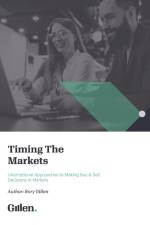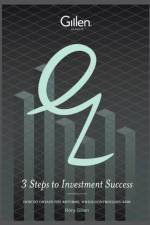- How to Obtain the Returns, While Controlling Risk
av Rory Gillen & Virginia Gilbert
351
The aim of this book is to demonstrate that becoming a successful do-it-yourself (DIY) investor is within the reach of almost every person in society. Saving or investing in the stock markets is for everyone - from parents with the children's allowance, to someone who has a lump sum to invest, to the person who has just started working but can save even a month, to someone who is free to manage their own pension. Building an asset base from which you can earn income gives you choices later in life. The aim is that, when you close this book, you should be able to implement an easy-to-follow approach to investing in the stock markets, whilst minimising risk. No matter what level of experience you are starting from, this book is aimed at assisting you to obtain the returns on offer from the markets over time. Arming yourself with a proper strategy or plan, which dictates what you buy and when you sell, is the key to stock market investing, and developing one is a good deal easier than you may think. That plan might be simply to invest across the different asset classes where there appears to be clear value on offer; to concentrate on high yielding funds listed on stock markets as a method of generating income, while controlling risk; or to master some successful approach to stock selection. 3 Steps to Investment Success offers an easy-to-follow mechanical approach to selecting a diversified portfolio of stocks from the UK FTSE 100 Index, an index that represents the 100 largest companies listed on the London Stock Exchange by market capitalisation. You will learn also how to invest in the stock market indirectly through listed funds, such as exchange-traded funds and investment companies, which offer instant diversification, allowing you to more easily control risk. And 3 Steps to Investment Success includes a short story, A Villa in the Sun by Virginia Gilbert, a BAFTA-nominated, award-winning writer and director, to drive home the often real consequences of speculating in markets rather than investing.




